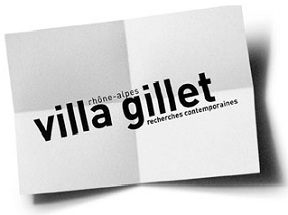Some thoughts on silence and the contemporary “investigative memoir”
![[title-image]1332154741582[/title-image] roth_1354795401014-jpg](https://cle.ens-lyon.fr/anglais/images/roth_1354795401014-jpg/image_preview)
His first book, a memoir of AIDS and other unforeseen transmissions amid the vanished liberal culture of Manhattan’s Upper West Side, is called The Scientists.
Having just a month ago published a book, okay, a “memoir,” that deals with a family legacy of silence, secrecy, and avoidance, or, rather, of a family with a divided inheritance of secrecy, on my father’s side, and of raw, public revelation on his sister’s side, I find it more than a little ironic that I’ve put off writing this contribution to the Walls and Bridges symposium on family writing for so long—really until the last possible moment. I can come up with some good excuses: the most compelling one, for me, is that the recent publication of the book makes me reluctant to want to provide any kind of supplement to it, as though, by doing so, I’d reveal the book to be somehow insufficient to its subject. I want it to stand alone, a while longer, to stand in for me, as if I could just put it on the table here, as a silent partner, and vanish behind it, have no need to appear at all, to play “the author” in public. Indeed, it was one of my hopes that, having written the book, I’d no longer need to speak about the mystery of how my hematologist father contracted AIDS—was it a lab accident or was it sex?—or the greater mystery of why my mother—who knew more about it than anyone else still living—refused the opportunity to speak to me about it at a moment when I would have been more inclined to honor her immense will to privacy. I’d been floating along telling myself that I was henceforth “done with that.” But of course you’re never done with the patterns and habits that your family has seduced you into adopting as your own, and never done resisting them, even when you’re aware of the instruments and arts of their seduction.
If I needed to be reminded, my hesitation to contribute should be proof enough. What have I been doing all this time while I could have been writing up tonight’s text except indulging a nostalgia for a period when I didn’t even know how to talk about my “immediate” family, when every attempt to discuss what happened among this group of three people, joined for many years by what they all knew they couldn’t talk about, would be met with silence, or, worse, clichés, those little everyday acts of language designed to do the opposite of communicate. I’m sure you can all provide your own examples. I’m not talking about infancy, or childhood, but a fairly recent past. It’s frightening, although I shouldn’t have been surprised by it, the ease with which I could slip back into this habitual mode of private bafflement, the auto-asphyxiation of a rather large part of my mental life.
A certain kind of contemporary memoirist, or chronicler of family life, is never really done with whatever it was that led him or her to the point where the only way forward was to go backwards, towards a vanishing point, a zone rich with absences. I was joking with a friend, recently, that I’d felt that I’d at last arrived, as a writer, because someone at one of these panels asked me about “my process.” This question is so common that it’s become impossible to take seriously: “You mean, do I write in bed? Do I do zen meditation exercises?” And yet, for these types of memoirists, of which you have four specimens before you, tonight, the dreaded process question is also so fundamental that we probably can only evade it when it comes up too casually, during obligatory question time. The memoirs themselves offer the best answer to the question, since these are works that are investigative rather than declarative. The ostensible subject matter of anguished and agonizing parents, the specific milieux—whether among the intellectual classes of New York, in my case, or Paris in 1968, or of lives maintained in bohemian hinterlands, are less important than how the author gives life to his or her acts of mourning, of recollection, and formation. These are records—not of something that’s done with—of the past—but of psychic processes that are perpetually ongoing. These books, I’m starting to understand, become parts of our lives.
These memoirs thus offer evidence of unusual but necessary methods of conducting oneself in relation to the past. They are themselves part of a process of recollection that requires us not to be “done with” or “over” something precisely in order that we may go on with life in a meaningful way.
Critics and readers, at least in the United States, however, seem to be slower to recognize the investigative memoir as a narrative mode deserving of attention as such. The American memoir comes burdened with a history of survivor’s tales and evangelical Protestant redemption stories: the writer is usually delivered from bondage: slavery or captivity in the 19th century, Communism, Nazi Europe, or “substance abuse” in the 20th, and into freedom or the light of truth. THE END. Testifying, in both legal and religious senses, is important. Important too is the sense that the author can be written into a social order, given a normal or productive life. In short, memoirs are written by individuals, usually to provide evidence of a precariously achieved individuality, but are read, mostly, by societies. Those societies have a greater say in regulating the shape of the stories than the author might wish for.
What I’ve been calling “the investigative memoir,” the memoir that not only delves into a painful history but delves into the delving, can actually serve as a challenge to the social orders into which the authors and their subjects are often placed. There’s a medical or therapeutic order, “does having written this book make you feel better;” or “what insights does this book contain for those with a family member suffering from a disease or a mental illness,” a cynical, market-based order, in which the retailing of pain and loss is viewed as a step up from actual prostitution, as a critic put it recently, “in this shameless age, no confession is so strange or scandalous as to be brave in itself;" a political-legal order, “what kinds of values are served by the representation of the people in this book,” an aesthetic order, and the vestiges of a religious or moral order, which may or may not be the same. The arrival of more of these investigative memoirs may also be a sign, in both American and French contexts, that the old orders don’t mean as much as they once did. Both societies are experiencing, in different ways, a full crisis of “liberalism,” both in the economic and political meanings of the word, and many in my generation are in the grip of what’s been called “precariousness” (precarité). The family, whether considered as the primary economic, social, or emotional unit of our communal existence, is placed under enormous pressure. In the face of these pressures, the traditional notions of privacy, of reticence, of intimacy, of health, even, come to seem inadequate to what we have to face. While nobody should think writing a memoir will solve anything, there’s a need for works which can restore a public dignity to people and actions that otherwise have unsavory public labels, “the mentally ill,” “the sexually repressed,” “the addict,” etc.. Such works can also show ways of thinking, writing, and being necessary for people to survive their families and their societies without violence, without always having to say, as President Obama once said, “we need to look forward as opposed to looking backwards."
Cette ressource a été publiée dans le cadre de la quatrième saison du festival "Walls and Bridges", organisé par la Villa Gillet, qui s'est tenu à New York du 11 au 20 octobre 2012.
Pour citer cette ressource :
Marco Roth, Some thoughts on silence and the contemporary “investigative memoir”, La Clé des Langues [en ligne], Lyon, ENS de LYON/DGESCO (ISSN 2107-7029), décembre 2012. Consulté le 26/02/2026. URL: https://cle.ens-lyon.fr/anglais/litterature/les-dossiers-transversaux/theories-litteraires/some-thoughts-on-silence-and-the-contemporary-investigative-memoir



 Activer le mode zen
Activer le mode zen


